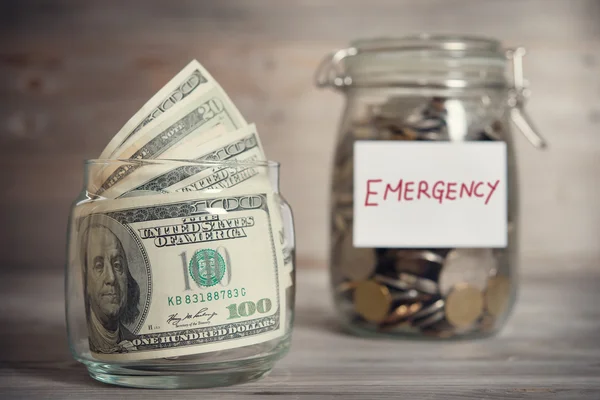Building Financial Resilience: The Importance of Emergency Funds

In the realm of personal finance, few concepts are as fundamental yet often overlooked as the emergency fund. In this comprehensive guide, we explore the critical role that emergency funds play in providing financial security and peace of mind, particularly during times of uncertainty and adversity. From understanding the purpose and benefits of emergency funds to practical strategies for building and maintaining them, we delve into the nuances of this essential financial tool, aiming to empower individuals to safeguard their financial well-being and weather life&8217;s unexpected storms with confidence and resilience.
At its core, an emergency fund is a dedicated pool of savings set aside to cover unexpected expenses or financial emergencies that arise in daily life. Whether it&8217;s a sudden medical bill, car repair, or job loss, having an emergency fund provides a financial safety net that allows individuals to navigate unforeseen challenges without resorting to high-interest debt or depleting other savings accounts. Unlike long-term savings goals such as retirement or education, the primary purpose of an emergency fund is to provide immediate liquidity and peace of mind, allowing individuals to address emergencies with confidence and minimal financial stress.
The Benefits of Emergency Funds: Financial Security and Peace of Mind
The benefits of having an emergency fund extend far beyond simply covering unexpected expenses; they provide a sense of financial security and peace of mind that is invaluable in today&8217;s unpredictable world. Knowing that you have a financial cushion to fall back on in times of need can alleviate stress and anxiety, allowing you to focus on finding solutions to the challenges at hand. Additionally, emergency funds can help protect against the need to rely on high-interest credit cards, payday loans, or other forms of expensive debt, which can quickly spiral out of control and undermine long-term financial goals. By proactively building and maintaining an emergency fund, individuals can take control of their financial destiny and face life&8217;s uncertainties with confidence and resilience.
Strategies for Building an Emergency Fund: Setting Goals and Prioritizing Savings
Building an emergency fund requires discipline, determination, and a clear plan of action. The first step is to set a realistic savings goal based on your individual circumstances and financial obligations. Financial experts generally recommend saving three to six months&8217; worth of living expenses in an emergency fund, although the actual amount may vary depending on factors such as income stability, employment status, and family size. Once you&8217;ve established your savings goal, the next step is to prioritize regular contributions to your emergency fund, treating them as non-negotiable expenses that are just as important as paying bills or saving for retirement. Automating contributions through direct deposit or automatic transfers can help ensure consistency and discipline in your savings habits, making it easier to build your emergency fund over time.
Maximizing the Impact of Your Emergency Fund: Optimizing Savings and Minimizing Expenses
In addition to setting goals and prioritizing savings, there are several strategies you can employ to maximize the impact of your emergency fund and accelerate your progress toward your savings goals. One approach is to optimize your savings by maximizing interest earnings through high-yield savings accounts or certificates of deposit (CDs) that offer competitive interest rates and minimal fees. Another strategy is to minimize expenses and redirect any windfalls or unexpected income, such as tax refunds or work bonuses, toward your emergency fund. Additionally, reducing discretionary spending and reallocating funds from non-essential expenses can free up additional cash flow for savings, allowing you to reach your savings goals more quickly and efficiently. By combining these strategies and remaining disciplined in your savings habits, you can build a robust emergency fund that provides the financial security and peace of mind you need to face life&8217;s uncertainties with confidence.
Navigating Financial Challenges: Leveraging Your Emergency Fund Wisely
While having an emergency fund can provide a sense of security and peace of mind, it&8217;s essential to use these funds judiciously and thoughtfully to address genuine emergencies rather than everyday expenses or discretionary purchases. When faced with unexpected expenses or financial setbacks, consider the nature and urgency of the situation and assess whether it qualifies as a true emergency that warrants tapping into your emergency fund. Remember that your emergency fund is intended to cover essential expenses such as housing, utilities, groceries, and medical bills during times of crisis, not discretionary purchases or non-essential expenses. By using your emergency fund wisely and conservatively, you can preserve its integrity and ensure that it remains available when you need it most.
Conclusion: Building Financial Resilience in an Uncertain World
In conclusion, the importance of having an emergency fund cannot be overstated in today&8217;s uncertain world. By building and maintaining a dedicated pool of savings to cover unexpected expenses and financial emergencies, individuals can safeguard their financial well-being, reduce stress and anxiety, and navigate life&8217;s uncertainties with confidence and resilience. From setting realistic savings goals to prioritizing regular contributions and maximizing the impact of your savings, the key to building a robust emergency fund lies in discipline, determination, and a proactive approach to financial planning. By embracing the concept of financial resilience and making emergency preparedness a priority in your financial strategy, you can lay the foundation for a more secure and stable future, free from the worries of life&8217;s unexpected twists and turns.
